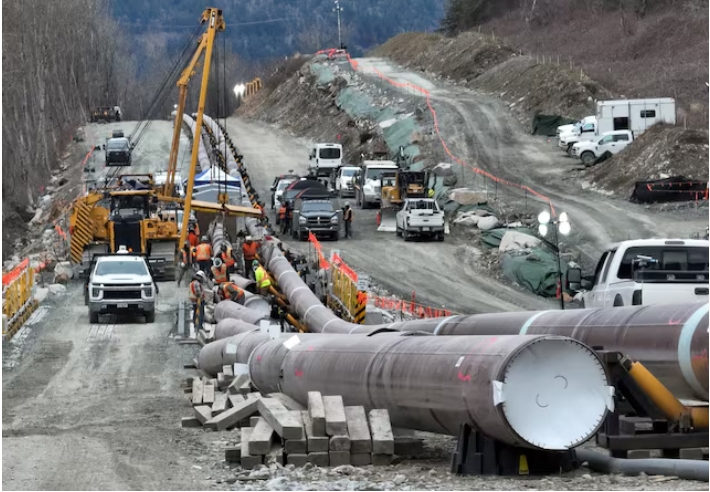
The expansion project, which has so far cost C$34 billion, nearly triples capacity to ship oil from Alberta to Canada's Pacific coast to 890,000 barrels per day. It started commercial operations on May 1 after years of delay.
While the oil industry in Canada, the world's fourth-largest producer, has welcomed expanded access to overseas markets, opponents of the project are critical of the cost to Canadian taxpayers and its environmental impact.
"We've basically written a blank cheque to this project," said Keith Stewart, senior energy strategist at Greenpeace Canada. "This money could have been so much better spent getting off oil and fighting climate change."
Prime Minister Justin Trudeau's Liberal government bought Trans Mountain from Kinder Morgan Inc (KMI.N), opens new tab in 2018 to ensure the expansion went ahead but in 2022, as costs soared, said it would no longer finance the project with public money.
However, the government did provide a loan guarantee to Trans Mountain Corp (TMC), which helped the crown corporation secure a C$10 billion credit agreement with a syndicate of commercial lenders.
The credit available to TMC from the syndicate increased to C$19 billion on May 17 and the maturity date was extended to August 2026, TMC said in its first-quarter results statement.
At the end of 2023, TMC had total available credit of C$18 billion that matured in March 2025 but said additional funding was required, which resulted in "material uncertainty that cast substantial doubt" on TMC's ability to continue as a going concern.
"The increase to the facility included a corresponding increase to the guarantee provided from the Government of Canada," TMC's statement said.
TMC has not disclosed the interest rate on the commercial loans but its financial statement showed interest expenses jumped 431% to C$143 million in the first quarter of 2024, up from $27 million in the same period a year earlier.
The corporation said the increase was partly due to higher interest rates on its syndicated facility.